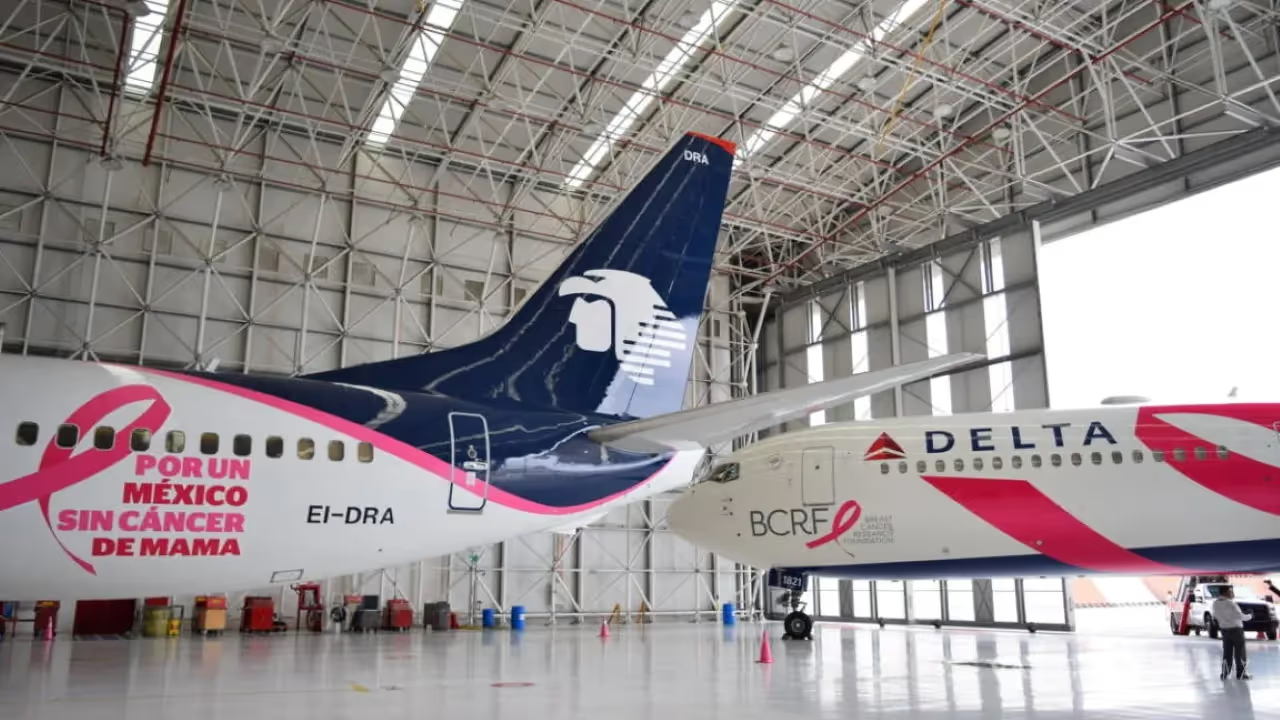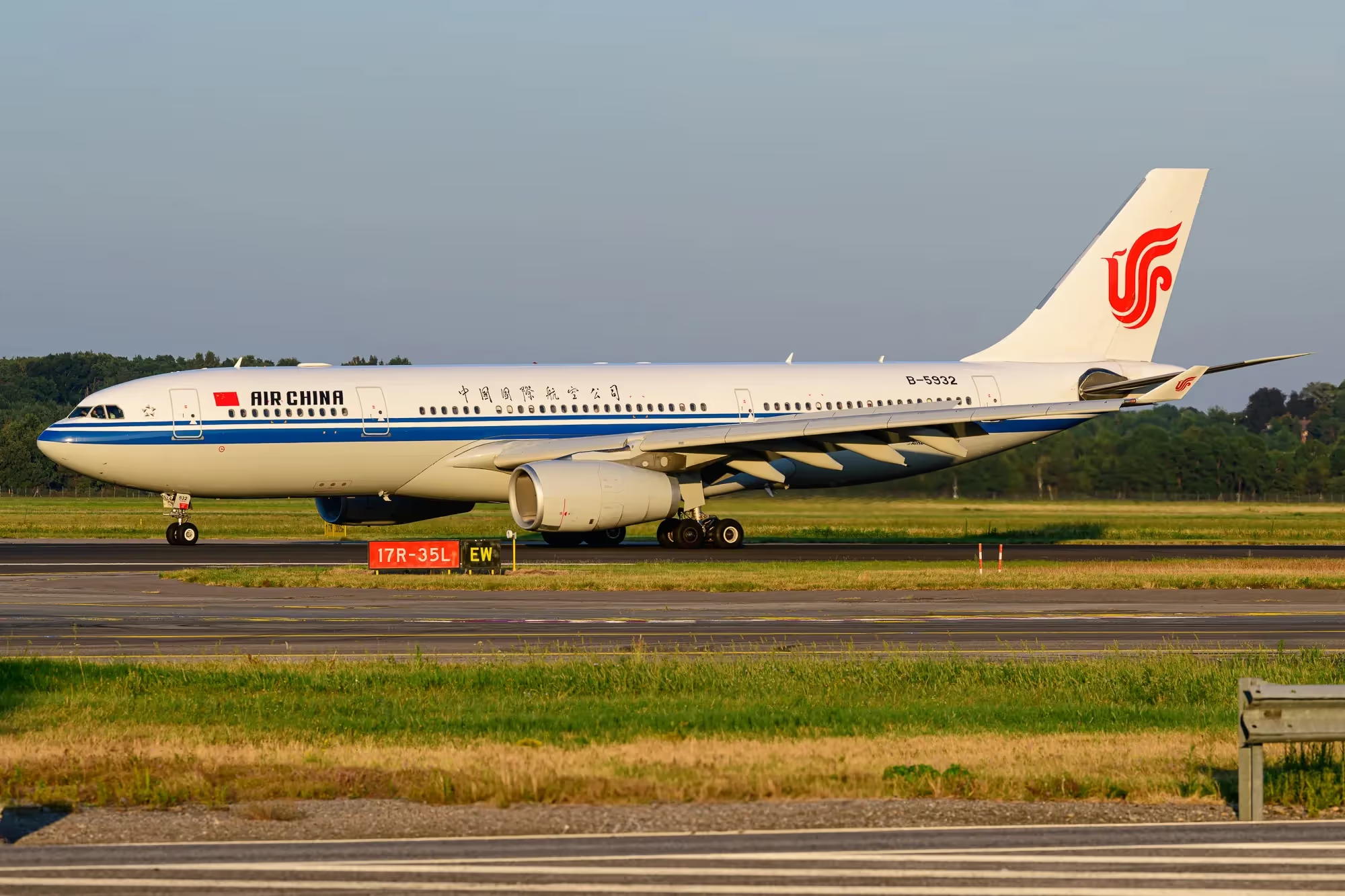DALLAS — U.S. Transportation Secretary Sean P. Duffy today announced several "America First" actions against what it calls "Mexico's blatant disregard of the 2015 U.S.-Mexico Air Transport Agreement and its ongoing anti-competitive behavior."
The agreement represented one of the most liberal aviation accords in North America, designed to facilitate unrestricted air service between the two countries. So what went wrong?
Background, Agreement Details
The United States and Mexico signed the Air Transport Agreement on December 18, 2015, and it entered into force on August 21, 2016, following the exchange of diplomatic notes on July 22, 2016. This comprehensive agreement replaced the more restrictive 1960 accord and was negotiated as part of the U.S.-Mexico High-Level Economic Dialogue (HLED) to promote competitiveness and connectivity.
The agreement eliminated government restrictions on routes, allowing airlines from both countries to fly between any city in Mexico and any city in the United States. It provided the first seven freedoms of the air, including unlimited market access for passenger and cargo airlines, improved intermodal rights, pricing flexibility, and other critical commercial rights.
The agreement's goal was to create a "liberalized operating environment for all airlines."
Mexico's Anti-Competitive Actions Since 2022
Slot Restrictions at Benito Juárez International Airport
According to the U.S. DOT, Mexico's most significant breach of the agreement began in 2022 when it "abruptly rescinded slots and then forced U.S. all-cargo carriers to relocate operations."
The Mexican government claimed this was necessary for construction to alleviate congestion at Benito Juárez International Airport (MEX), but "construction that has yet to materialize three years later."
In September 2022, Mexico reduced the number of authorized landing and takeoff slots per hour from 61 to 52, and later to 43 flights per hour—a 20% reduction effective October 2023, affecting the big three US carriers.
Forced Relocation of Cargo Operations
The Mexican government published a decree in February 2023 that forced all dedicated cargo operations to relocate from Mexico City International Airport (MEX) to Felipe Ángeles International Airport (NLU).
This unilateral decision provided U.S. cargo carriers with only 108 business days' advance notice, later extended to September 1, 2023. The decree affected major carriers including Lufthansa Cargo (LH), Qatar Airways (QR), Air France Cargo (AF), and various U.S. operators.
According to a FreightWaves.com analysis, "62% of cargo arrives into Mexico City on freighter aircraft," making the impact "quite significant." The forced relocation added operational complexity and costs for carriers while disrupting established supply chains.
Lack of Transparent Slot Allocation
Mexico has failed to implement a transparent and non-discriminatory slot allocation regime that adheres to international standards. The U.S. DOT noted that Mexico "lacks a transparent and non-discriminatory slot allocation regime that adheres to international standards and applies consistently across the country's airports, including MEX."
The view from the White House is that this obfuscation contrasts sharply with IATA Worldwide Slot Guidelines, which mandate that "slots at coordinated airports are neutrally and fairly allocated to airlines" using "consistent policies, principles, and processes."

U.S. Response: Countermeasures
White House Actions
U.S. Transportation Secretary Sean P. Duffy's announced three key countermeasures to Mexico's agreement violations:
- Part 213 Order: Requiring Mexican airlines to file schedules with the Department for all their U.S. operations
- Part 212 Order: Requiring prior DOT approval before operating any large passenger or cargo aircraft charter flights to or from the United States
- Antitrust Immunity Withdrawal: Proposing withdrawal of the DL/Aeromexico (AM) joint venture's antitrust immunity
Termination of the Delta-Aeromexico Joint Venture
The most significant U.S. response came in January 2024 when the DOT tentatively dismissed Delta Air Lines (DL) and Aeromexico (AM)'s application to renew their antitrust immunity. The DOT stated that "Mexico has walked away from its commitments" and that Mexico's actions "harm airlines seeking to enter the market, existing competitor airlines, consumers of air travel and products relying on time-sensitive air cargo shipments."
This decision would force the termination of cooperation between DL and AM, affecting over 90 daily flights between the United States and Mexico and potentially canceling flights on 21 routes. At the time, both carriers strongly criticized the US government's termination of their 2016 joint venture, calling the decision "arbitrary, misdirected, discriminatory, and ineffectual" in a filing to the US Department of Transportation (DOT).
The airlines warned that canceling their alliance would result in the loss of jobs, higher fares, and the elimination of US$800 million in consumer benefits. DL had previously asked the DOT to reconsider its tentative decision, and in the new filing, the airlines provided more detailed arguments for why the decision should be reversed to no avail.
IATFCPA Remedies
The U.S. has available remedial tools under the International Air Transportation Fair Competitive Practices Act (IATFCPA), which allows the Department of Transportation to take action against "anti-competitive, discriminatory, predatory or unjustifiable activities by a foreign government or foreign airlines."
Under this authority, the DOT can "deny, amend, modify, suspend, revoke, or transfer a foreign air carrier's permit or can impose tariffs."
Legal Framework, Violations
Article 11: Fair Competition Obligations
The 2015 agreement's Article 11 emphasizes fair competition principles, stating that each party shall provide "fair and equal opportunities for airlines to compete in international air transport."
Article 11(2) specifically prohibits either party from unilaterally limiting "traffic volume, frequency, regularity of the service, or type of aircraft operated by the other airline, except when this is required for customs, technical, operative or environmental reasons."
These fundamental clauses are compromised by Mexico's capacity restrictions and cargo relocations, which were implemented by Mexican authorities for purported congestion-related reasons rather than the agreed-upon technical or environmental reasons.
Dispute Resolution Mechanisms
While Article 15 outlines procedures for arbitration, Article 13 permits discussions between the parties. The United States has stated that it is prepared to pursue these diplomatic avenues while simultaneously taking countermeasures.
Economic Impact, Market Distortion
Cargo Operations Disruption
The forced relocation of cargo operations has impacted trade flows between the two countries. In the first two months of 2024, NLU handled 193,521.8 tons of freight, whilst AICM had a 60.9% drop in cargo operations.
Industries that significantly rely on Mexico City for import and export operations, such as the pharmaceutical, medical device, and automobile sectors, are impacted by this disruption.
Competitive Disadvantage for U.S. Airlines
The U.S. views Mexico's actions as creating an uneven playing field that puts U.S. airlines at a disadvantage. The slot reductions at MEX and the lack of transparent allocation processes "reduce competition and allow predominant competitors to gain an unfair advantage in the U.S.-Mexico market."
Ongoing Diplomatic Efforts
As of June 19, 2025, the two governments are still debating how to resolve the conflict. In June 2023, the Mexican Secretariat of Infrastructure, Communications, and Transportation and the U.S. DOT issued a joint statement stressing the importance of "developing the bilateral relationship in a manner fully consistent with the 2015 U.S.-Mexico Air Transport Agreement."


.avif)
.avif)
.avif)
.avif)
.avif)





.avif)